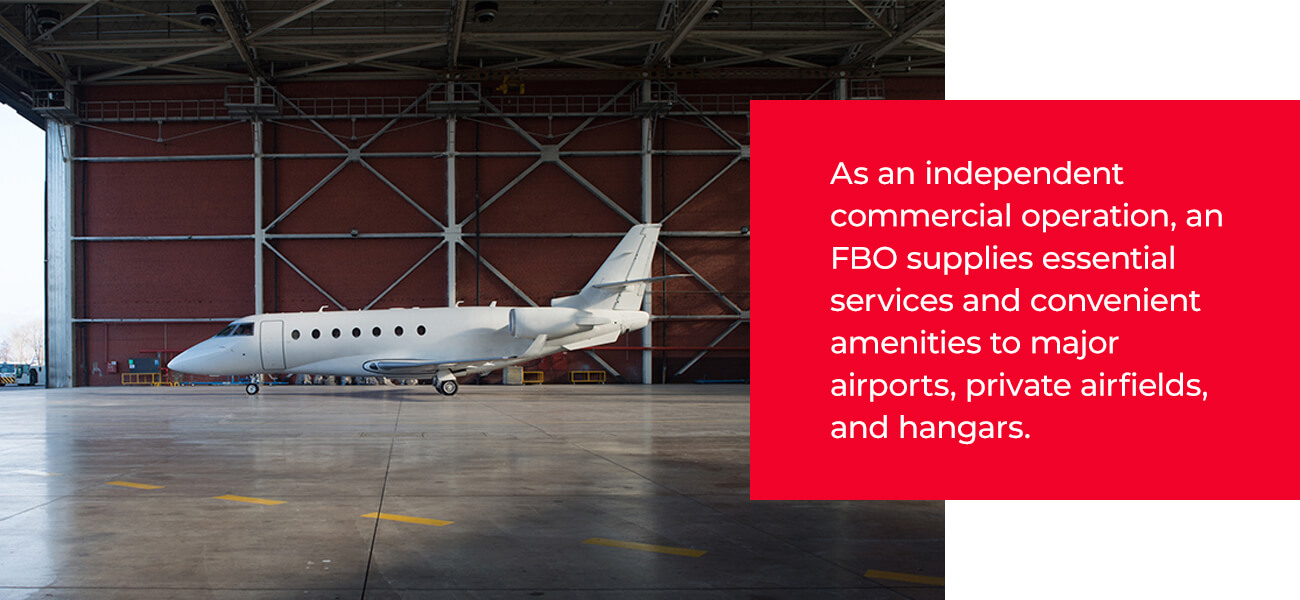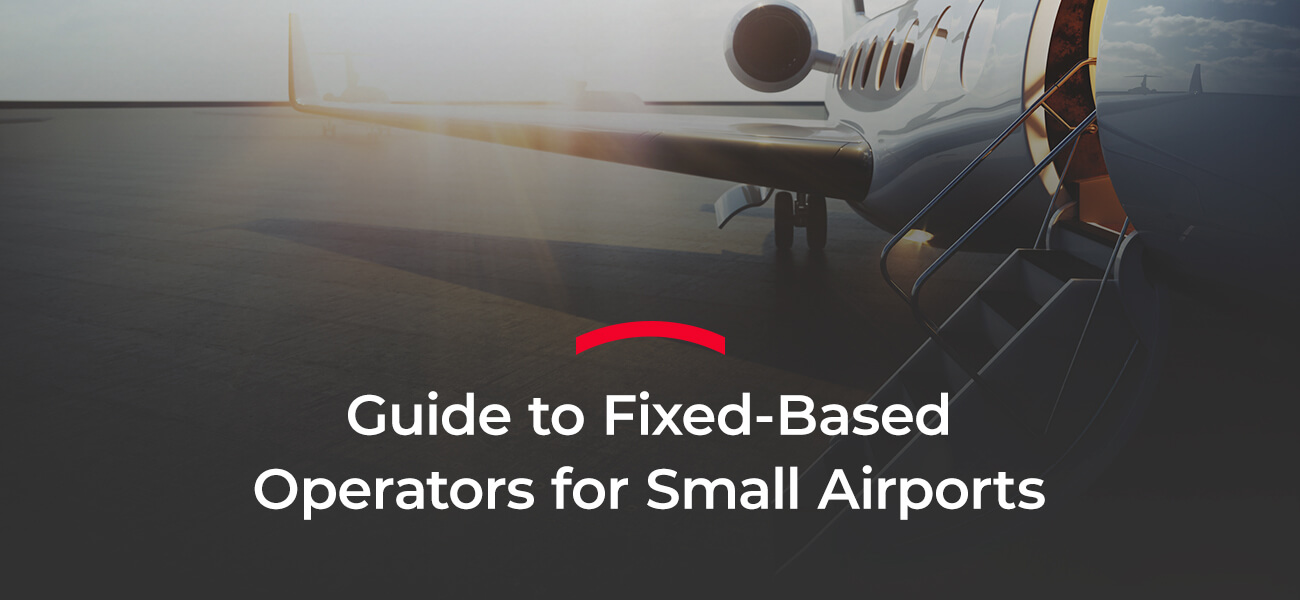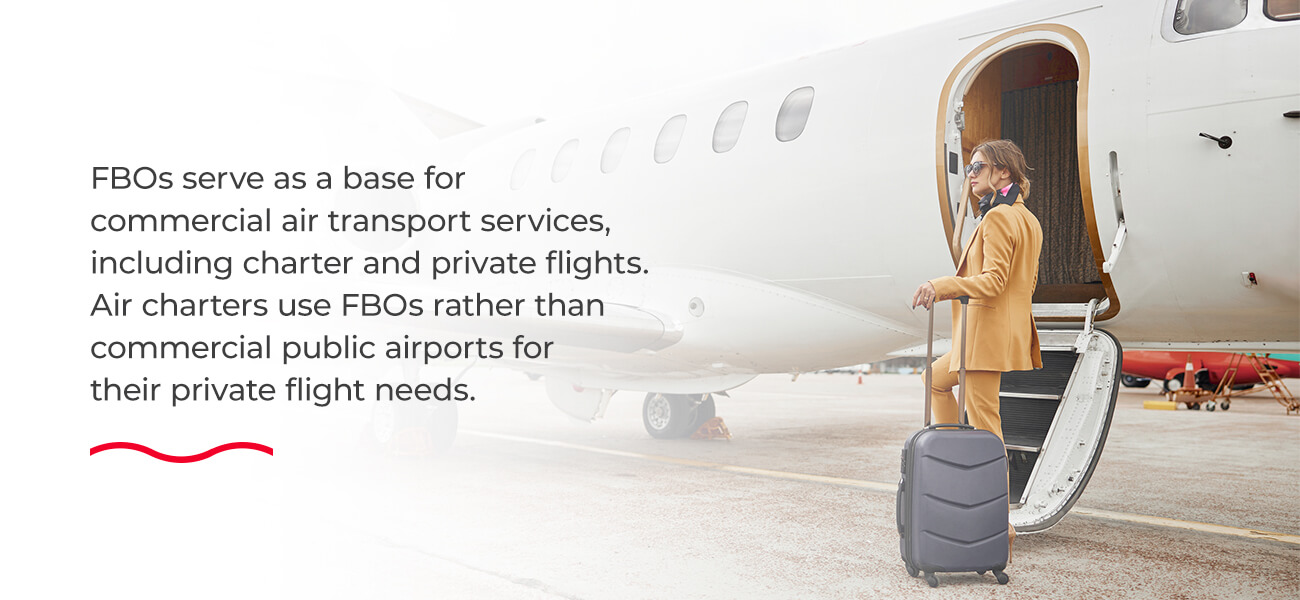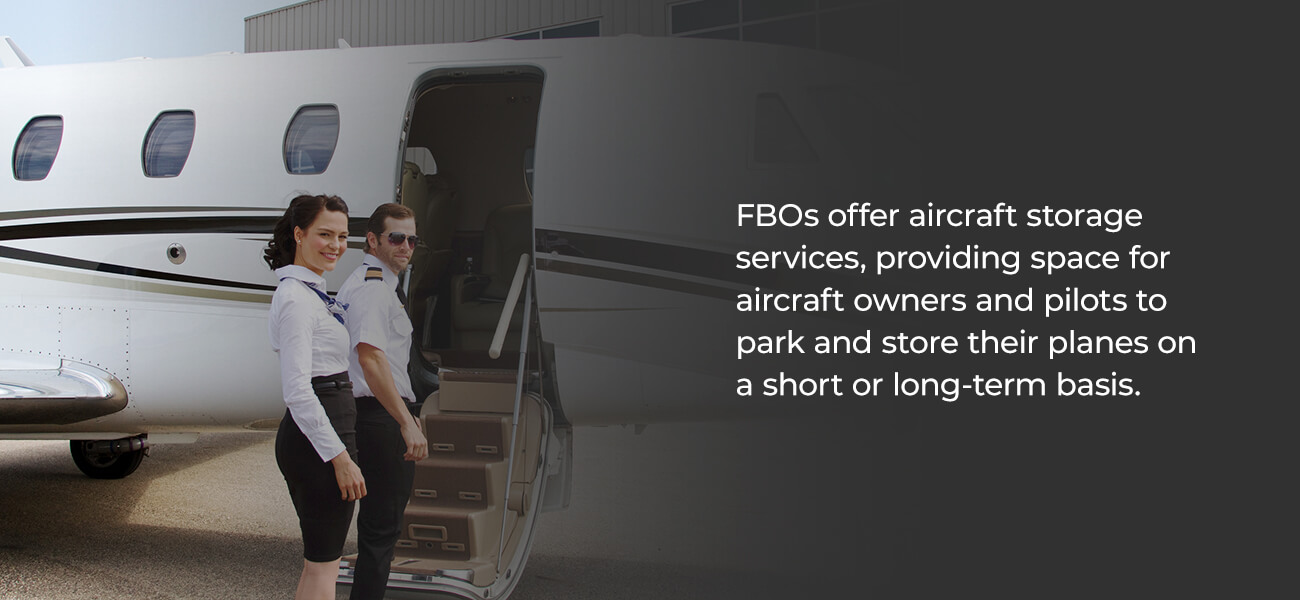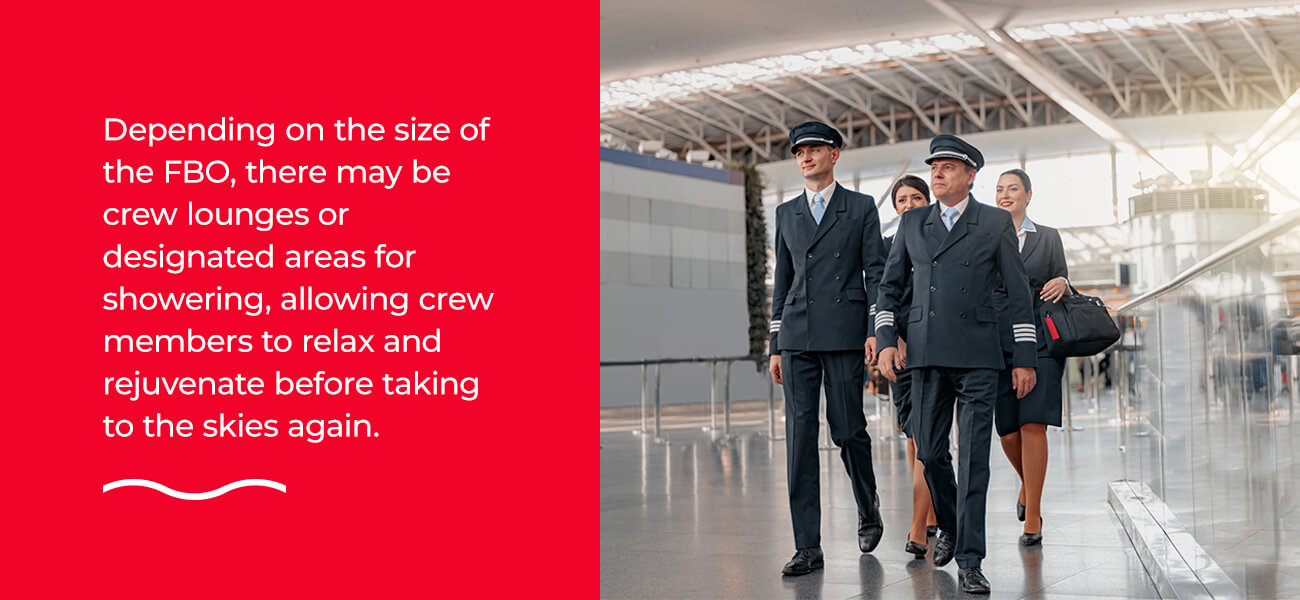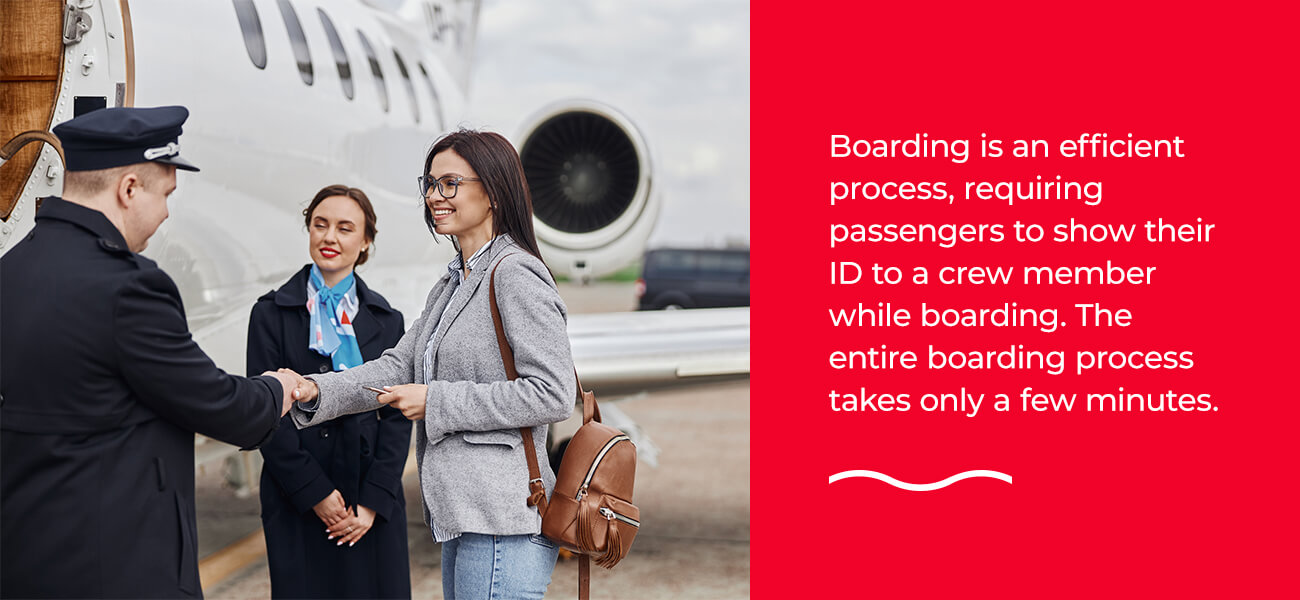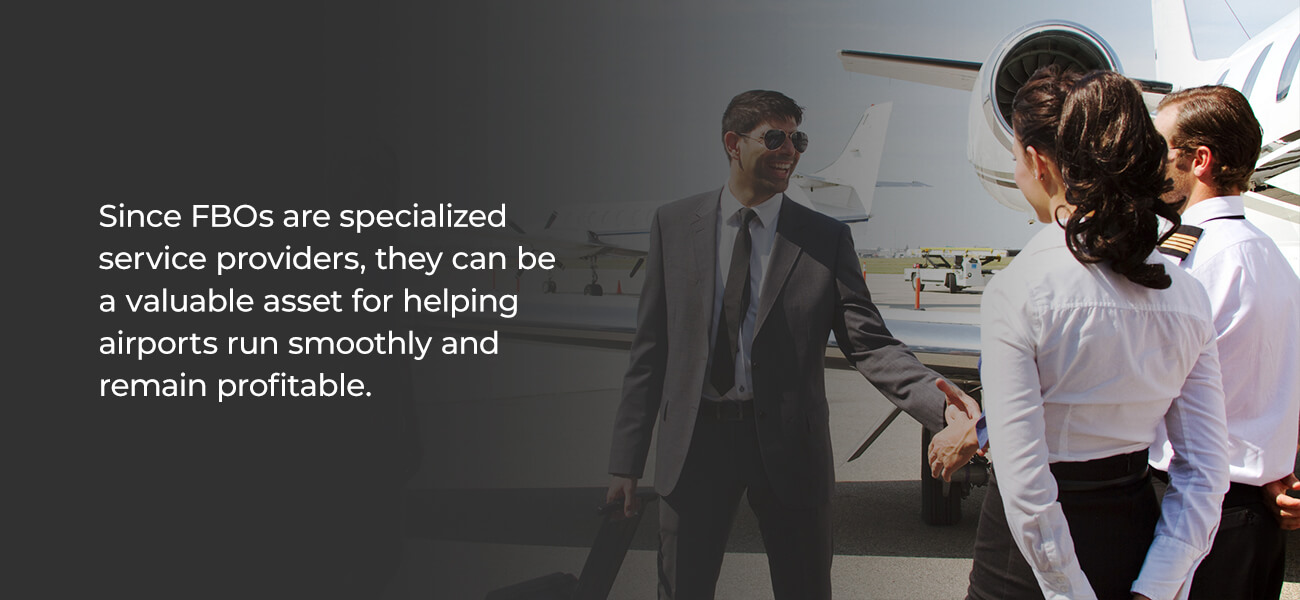Airports around the world rely on their strategic partnerships with fixed-base operators (FBOs) to provide essential and luxury services to charter flights and other aircraft that help keep their operations running smoothly. Offering a host of services from aircraft maintenance to fuel to passenger amenities, FBOs are becoming the air travel destination of choice for private flight crews and passengers.
As the asset protection industry leader, VPS is committed to helping small airports find the right FBO solutions for them. Our guide to fixed-base operators for small airports covers everything that airports need to know about the services FBOs provide and how to partner with the right one.
Read the full article or jump to a specific section:
- What Is a Fixed-Base Operator?
- What Are the Classifications of FBOs?
- What Are Some Services Offered by FBOs?
- What Are the Benefits of Airport FBOs?
- Frequently Asked Questions About FBOs
- Does My Airport Need an FBO?
- Choose VPS for Premium Shade Structures for FBOs
